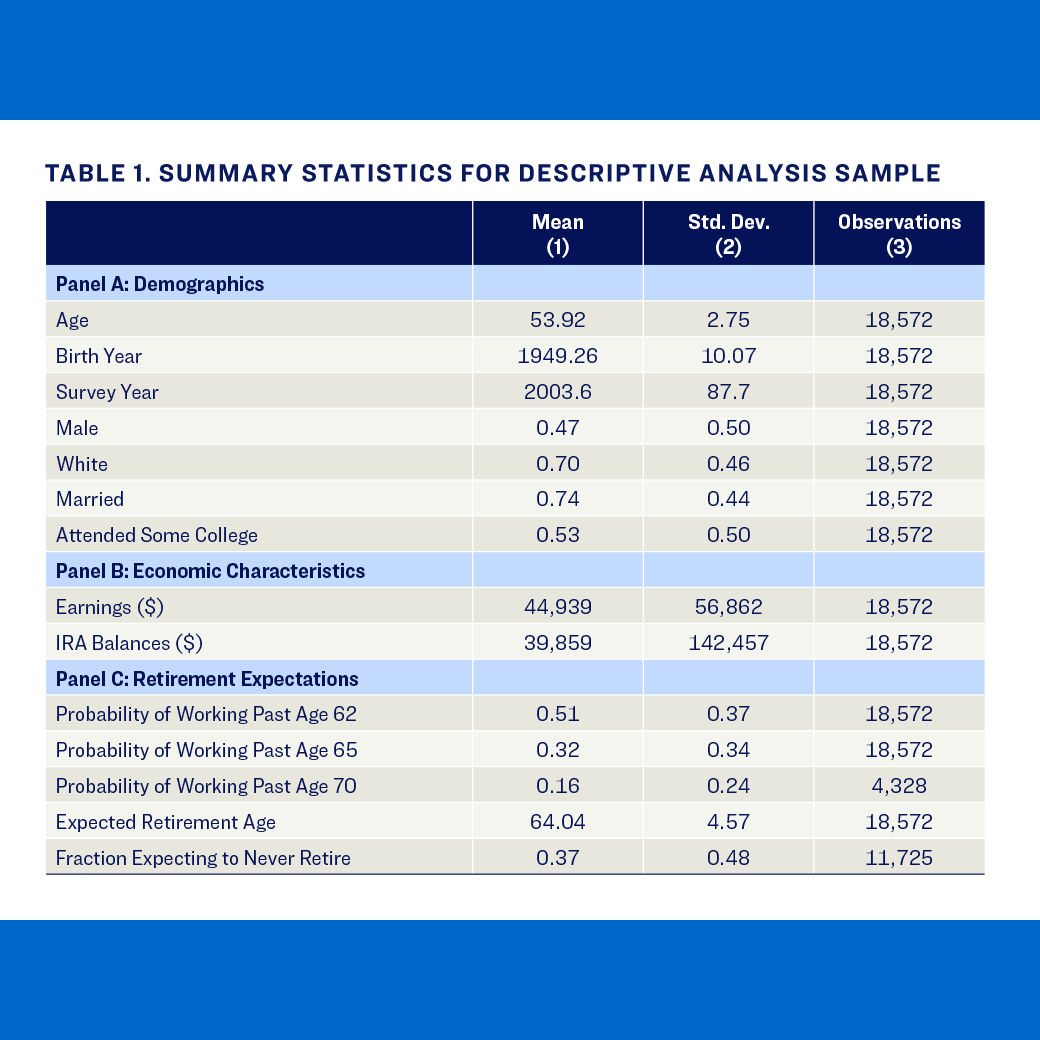The timing of retirement is a major determinant of financial security. Yet workers’ actual retirement timing may be different than their expected time of retirement.
Summary
Retirement is a complex decision that depends on many hard-to-predict factors, including an individual’s work environment health status, family care needs, receipt of bequests, and working decisions of family members. Understanding how people navigate this uncertainty and how life events influence retirement decisions is the focus of this paper. The authors provide new evidence on the factors that shape expected retirement timing and how expectations evolve with age. They also assess how demographic, economic, and health characteristics can alter those expectations.
Key Insights
- Older workers tend to expect to continue working to older ages than younger workers.
- Many health shocks—e.g., declines in health status, cancer, lung disease and arthritis—cause decreases in the likelihood of working past common retirement ages.
- There is limited evidence that economic and family events significantly impact retirement expectations.



